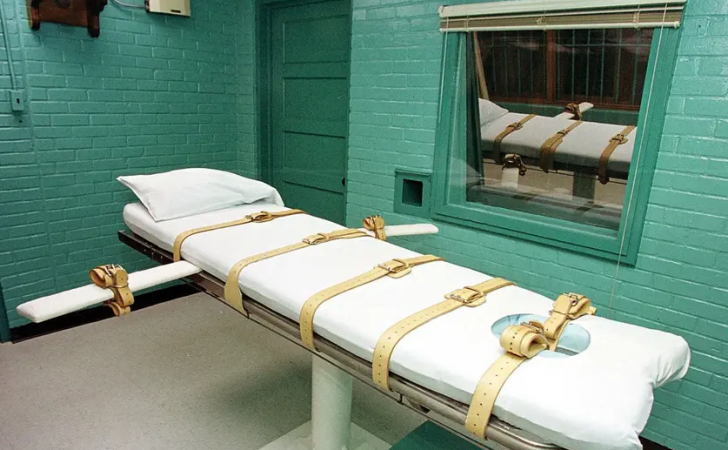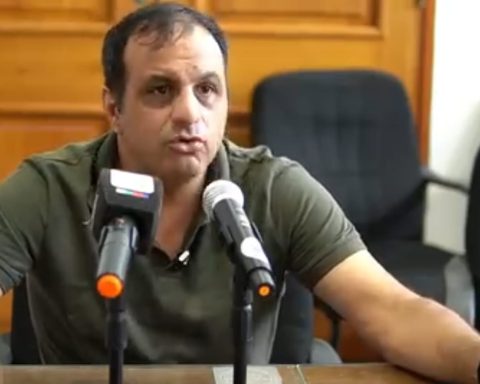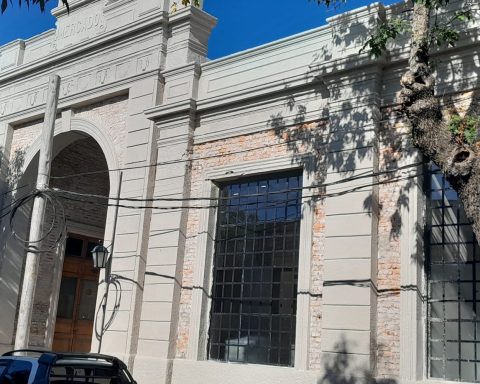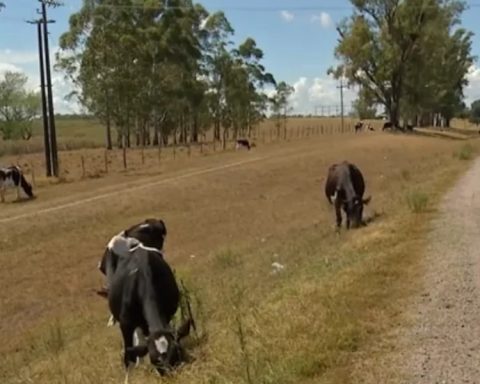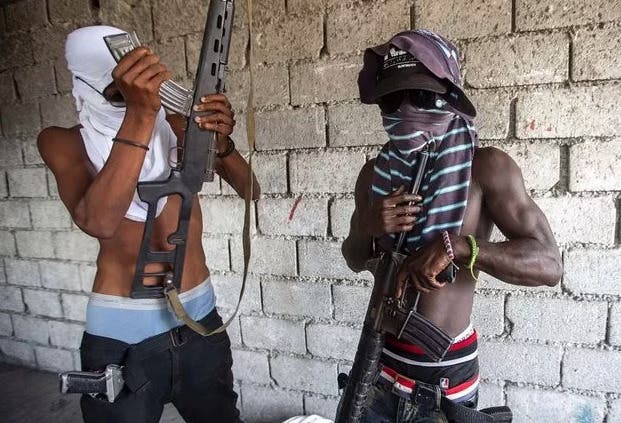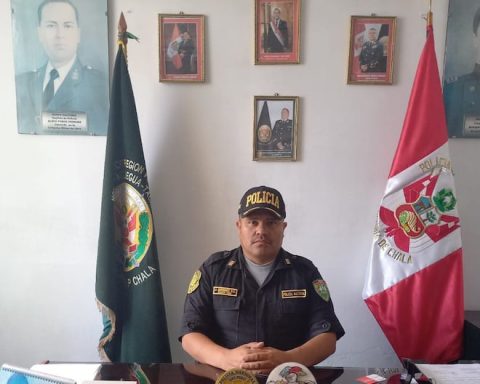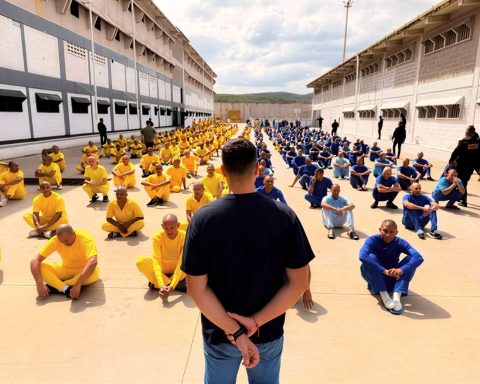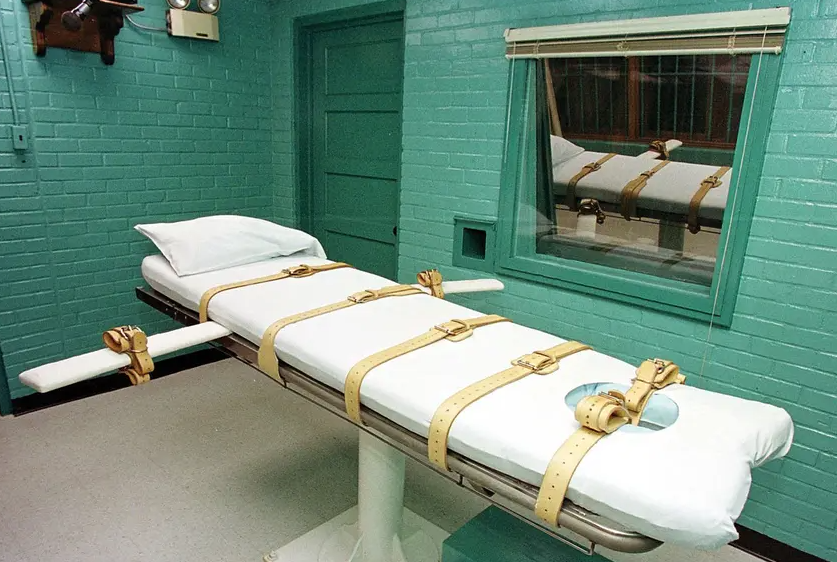
A delegation from the government of Luis Lacalle Pou will travel to the US state of Texas to take a closer look at its prison system, which was implemented in 2007 and has left both positive and negative results, and has even been singled out for violating human rights.
The delegation will be comprised of representatives of the National Rehabilitation Institute (INR), the Attorney General’s Office, the Judiciary, the parliamentary commissioner’s office and two legislators who are members of the special commission for Monitoring the Prison Situation.
Juan Miguel Petit, parliamentary commissioner for prisons, has also spoken about this prison system and believes that “before building more prisons, let’s try the measures that have worked in other parts of the world.”
In 2007, when the southern state decided to switch to the current system, there was a deficit of some 17,000 quotas that had to be added before 2012, which would entail an expense of US$2,000 million. Although mental health and drug addiction rehabilitation services have supposedly been added, the system has not been exempt from a large number of reports, court cases and investigations that relate to repeated human rights violations.
extreme heat deaths
In 2014, the Human Rights Clinic at the University of Texas School of Law produced a report in which they found that the extreme conditions in the state’s prisons violate the human rights of inmates, according to published the newspaper Texas Tribune in April of that year.
The 40-page document includes, for example, claims made in lawsuits over the deaths of eight incarcerated individuals filed by the Texas Civil Rights Project (TCRJ) against the Texas Department of Criminal Justice. , on behalf of the families of the deceased. In the text of the lawsuit, from 2013, it says that four inmates were exposed in 2011 to an intense heat wave that exceeded 40 ° C for weeks.
Inmates Douglas Hudson, Kenneth Wayne James, and Rodney Adams were housed at the Gurney facility near Tennessee Colony, and Robert Allen Webb was at the Hodge facility near Rusk when they died. The lawsuit alleged that these individuals were serving time for non-violent crimes, had medical conditions, and officials failed to protect them.
Webb and Adams, the lawsuit alleges, were prescribed psychotropic medications that made dehydration more of a threat, and that the prison knew “putting men with these medical conditions in such high temperatures could kill them, but they did it anyway.” modes”.
TCRP director Scott Medlock said at the time that the Gurney (Anderson County) and Hodge (Rusk County) jails are “death traps.”
The problem, they say, is that the guards and other officials were also exposed to the conditions Sidney Webb, sister of one of the deceased, when she visited her brother a week before his death. “It was not uncommon for inmates to strip down to their underwear and lie on the concrete floor to keep cool,” he said prison officials told him. “That’s where they found my brother.”
“In a way, prisons are a forgotten sector of society,” said Ariel Dulitzky, director of the Human Rights Clinic. “We think it’s important to give visibility to some of the issues they face.” In some places, he affirms, temperatures have been reported above 149 ° F, equivalent to 65 ° C, one of the conditions considered in violation of human rights and of the United States Constitution that prohibits punishment considered cruel or inhuman.
Lance Lowry, president of the Texas Correctional Officers Union, said in that report that prison workers have been filing heat complaints since the late 1990s without success.
According to public the british daily Guardianat least 14 people have died from exposure to extreme heat since 2007, and most facilities did not have air conditioning as of 2014, with the exception of medical, psychiatric and geriatric buildings.
Years later, the rapes continue
By the end of 2021, the Scottish Judiciary rejection what appeared to be a routine extradition, that of Scotsman Daniel Magee, who is accused of allegedly shooting a security guard in Austin, Texas in 2016 before escaping to his native country.
The reasons for rejecting the extradition are unprecedented in the country: the Edinburgh court judge decided to deny it because he understands that it has been found that the Texas prison system has terrible conditions for its inmates, for which international human rights instances are violated.
medical abandonment
In 2018 there was another lawsuit for human rights violations: an inmate filed a case against the Texas prison system because, allegedly, they did not treat him properly when he suffered from a strong flesh-eating bacterial infection for a week. According to the complainant, they did not take him to a hospital because there were not enough personnel for the transfer and to maintain the usual guard duty.
In the lawsuit, filed in December 2018 in state federal court, Harold Millican accuses the Texas Department of Criminal Justice and the warden of Gist State Jail of “callous disregard,” claiming they would not provide him with “adequate care.” ” nor would he be taken to the hospital for his foul-smelling infection in his arm until he went into shock and fell unconscious. He asks for an economic compensation of US$200,000, for the system to intensify training so that the personnel know how to deal with these situations in a better way and increase the number of uniformed personnel.
unintelligible food
In November 2020, at the height of the COVID_19 pandemic, the already inconspicuous food in Texas prisons got visibly worse, according to human rights organizations and inmates who filed lawsuits.
At that time, the prisons were closed for visits and prisoners could not interact much with each other to avoid contagion. What few know how to explain is why the quality of the food dropped so much: the food arrives in soggy paper bags, and they were served cold dishes with wet and soft bread (or dry and hard aged bread). In most occasions, describes The Marshall Projectthey were served slices of square lactal bread -known in English as ‘wonderbread’- smeared with a dubious meat with a cold sauce.
This meal, they add, does not comply with the prison system manual that requires that meals be healthy and nutritious, while ordering that different elements be included to give it a good taste.
“Conditions are so bad here, it feels third world,” one inmate wrote to his partner on a visit. “Nutrition is far from adequate, especially for COVID-positive inmates. You’d think they’d at least give us plenty of vegetables and protein, something with a vitamin content.”
A prison spokesman declined to comment, but they have denied the allegations in the past and defended the food provided.
planting evidence
Other violations of the dignity of persons deprived of liberty have to do with the planting of false evidence to file accusations, as happened in 2018 when three officers from the Ramsey Penitentiary Unit, in Brazoria County, were accused of allegedly planting screwdrivers in a cell.
The guards face charges of felony tampering with government records and misdemeanor oppression and abuse of authority. A grand jury voted in July of that year approving the indictments and arrests were ordered against the three subjects, according to narrated the houston chronicle.
“We’ve been fighting for independent oversight for years and we haven’t been able to get anything done,” said Jennifer Erschabek of the Texas Association of Families of Prisoners. “They always say there is the ombudsman, the House Corrections Committee, the Senate Criminal Justice Committee, the board, but that has never been effective for us because we never got the transparency or accountability that we need on these issues. You need the media to get to the bottom of this and get to the facts.”
The list of other complaints and violations is long, ranging from the provision of contaminated water to inmates, the refusal to provide hand sanitizer during the pandemic, the lack of dental health and, one of the most serious of all, the story of Dennis Wayne Hope, who has spent more than 30 years in solitary confinement, something that is considered torture by human rights organizations and prisons.
